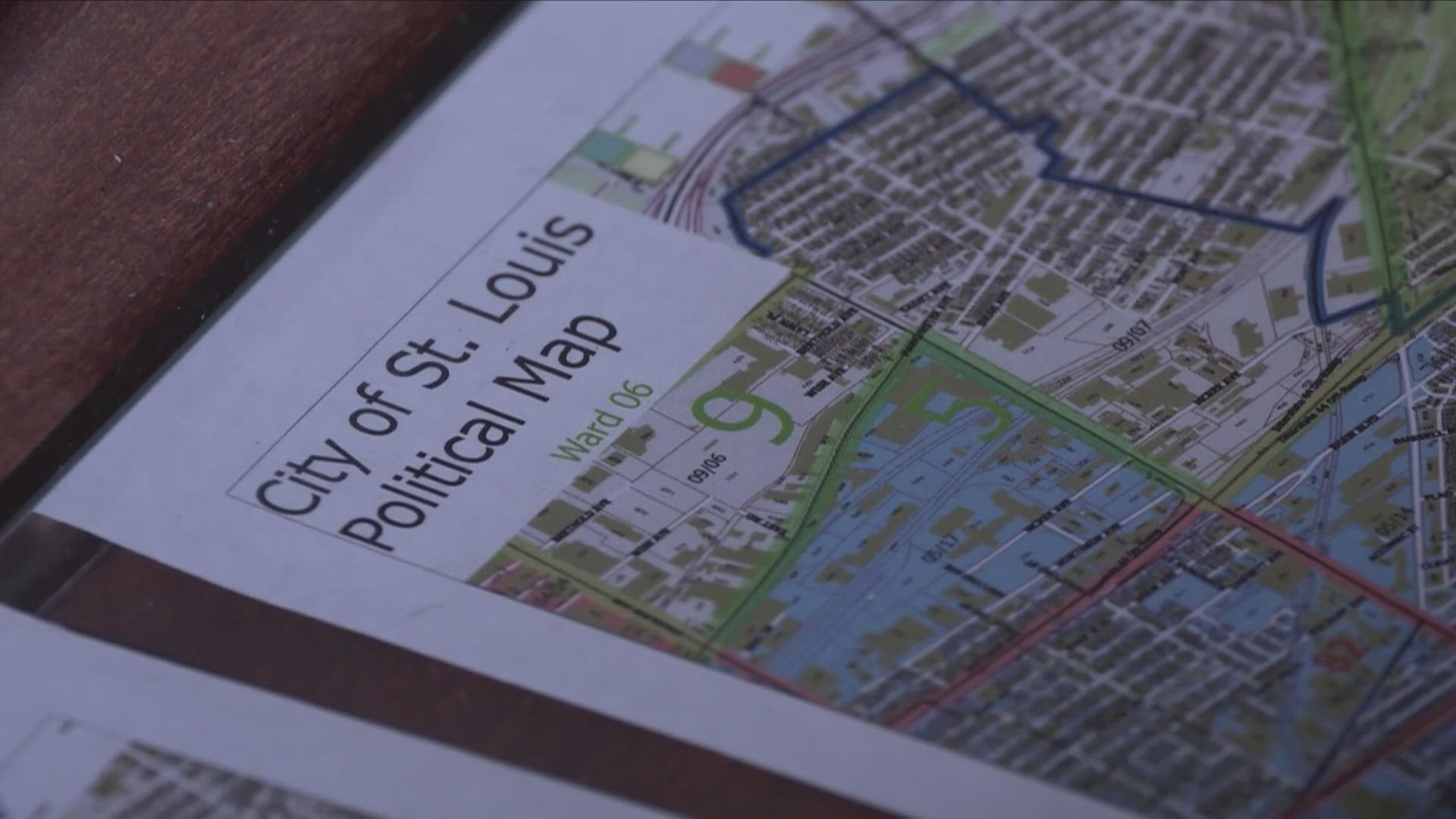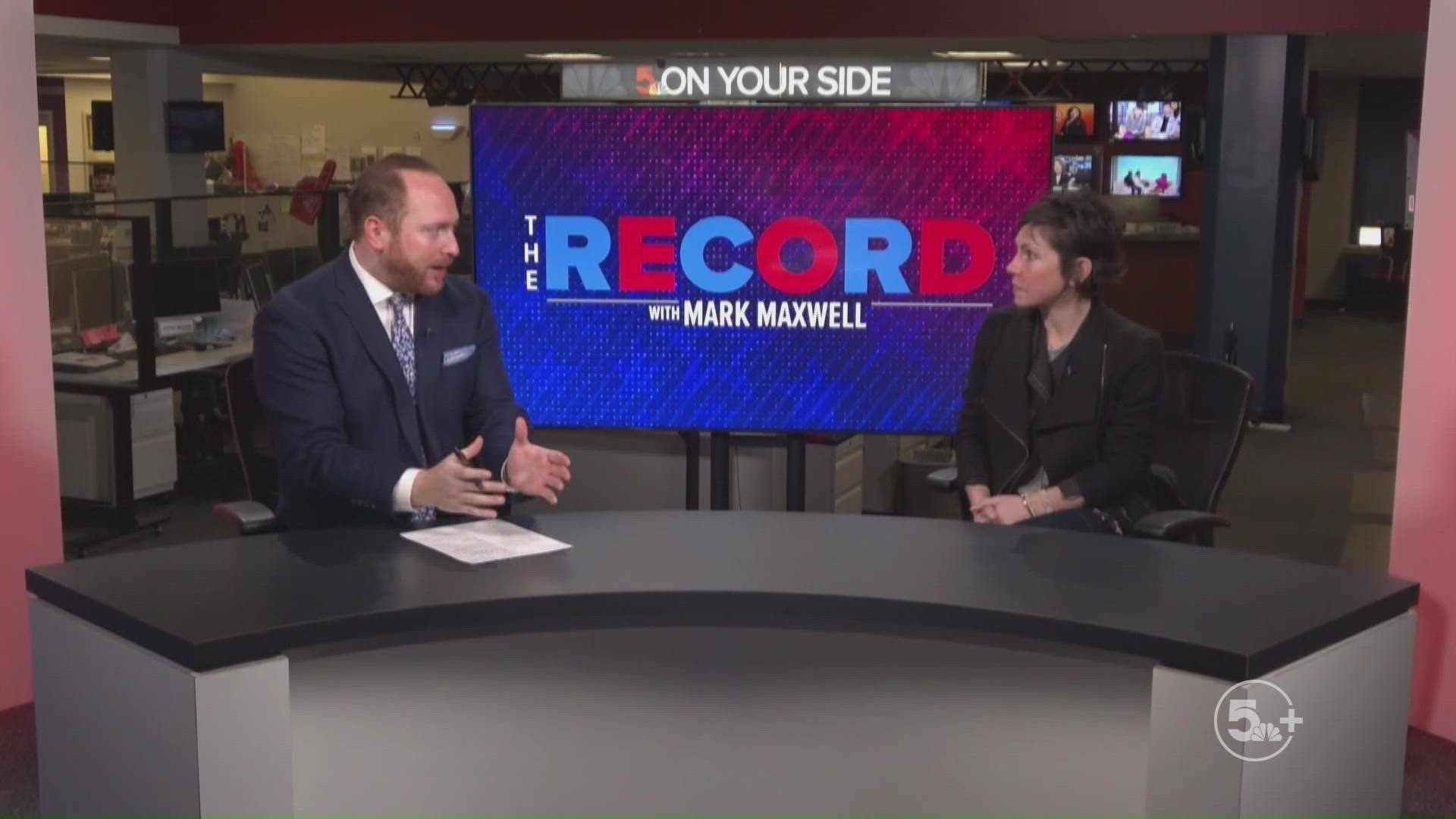ST. LOUIS, Missouri — For more than a century, 28 members of the Board of Aldermen governed the city of St. Louis. Those days are almost over.
A primary election on Tuesday will begin the toppling of dominoes in a chaotic transition phase that several local candidates have dubbed "Aldergeddon."
Tuesday's election marks the first political contest under the newly drawn ward maps, where 39 candidates will compete for 14 seats. The top two candidates in each ward will advance to an April 4 general election.
Ward reduction changes have been in the making for more than a decade after voters approved the plan back in 2012. "Aldergeddon" has already claimed 10 casualties as a handful of incumbents opted not to seek re-election, shying away from a sharp-elbowed brawl against their colleagues to prolong their political career.
Cutting the number of politicians in half represents "an enormous opportunity for the city of St. Louis," Alderwoman Cara Spencer said on The Record.
"We are at a very critical point for our city," she said. "We have been losing population and businesses downtown for years now, and that loss is getting even greater right now. We've lost 15,000 people in just the last two years, and this is a hemorrhaging of our tax base and our community that the city can't we really can't survive through."
The shrinking city lost population faster in 2021 than it has at any time in 40 years, according to data from the U.S. Census Bureau.
"Reducing the number of folks down there really can streamline city government," Spencer said. "It can help us spend less time fighting, more time legislating and getting more serious about the job of running the city of St. Louis."
The competition could also help Mayor Tishaura Jones consolidate power and exact revenge or settle scores against some of her critics or past rivals.
Spencer, a progressive who finished runner-up in the 2021 mayor's race, is one of four incumbents facing a challenge from a candidate backed by Jones. While their politics often align on key issues, Jones threw her support behind Spencer's challenger.
"I was disappointed that she decided to get involved in the race," Spencer said. "But hey, it's politics. And I feel good about I feel good about the voters in the 8th Ward making their own decision."
In a recent wave of primary endorsements, Jones backed newcomer Shedrick Kelley over Spencer, community activist Tashara Earl over incumbent alderwoman Sharon Tyus, and Rep. Rasheen Aldridge over incumbent aldermen James Page and Brandon Bosley.
"I'm used to taking on incumbents," Aldridge said, slamming their opposition to a guaranteed basic income and their votes against diverting capital funds from wealthier wards into poorer neighborhoods, both of which were Jones agenda items.
"We have to do [ward capital] in a way that's uplifting folks who have historically been left behind," Aldridge said.
"There's vacant homes after vacant homes," he said. "It's just blocks of decay, blocks of streets that have not been paved. Blocks of streets that don't even have sidewalks."
Board of Aldermen President Megan Green stayed out of Spencer's race, but in five other wards, she backed the same candidate as Mayor Jones, including an endorsement for Earl against Tyus.
Green and Jones both intend to forge ahead with plans to carve up the city's ward capital system, which currently allocates roughly $330,000 to each ward for aldermen to make improvements on their own.
A recent proposal to split those funds 70-30 and reallocate larger portions of funds to poorer wards fell apart after several incumbents expressed concerns about losing money for patching potholes or making other improvements in their wards.
"We anticipate that when the new board comes in that we will bring back up a bill that will do equitable distribution of ward capital funds," Green said at a press conference last week. "It only makes sense that more funding is going to wards that have greater needs."
The wards with the highest total costs of deferred maintenance are often the same stretches of St. Louis that experienced the highest rates of population loss. As wards were redrawn every decade, map lines expanded to follow voters. The politicians' pots of money were spread thinner and thinner across larger and larger swaths of crumbling roads.
"We need to push the money where it needs to go," Tashara Earl said at a Sunday afternoon campaign canvassing event in The Ville neighborhood.
Earl, who represents a younger generation of community organizers, is challenging Tyus, the longest-serving member of the Board, who publicly clashed with Mayor Jones over ward capital funds and street paving improvements in recent board meetings.
"We used to have a large pot of money to pave the large streets," Tyus said during a Board of Aldermen debate last month. She blamed past mayors for "stealing" those funds and suggested this mayor should use money from the Rams settlement to pay for infrastructure upgrades or deferred maintenance.
In a text message declaring her broad base of political strength, Tyus pointed to endorsements from Comptroller Darlene Green, Recorder of Deeds Michael Butler, and outgoing incumbent alderwoman Dwinderlin Evans.
Earl avoided any direct criticism of Tyus, but suggested that conditions in North St. Louis haven't improved nearly fast enough.
"I see that there are still vacant buildings, I see that there are a lot of potholes in the street," she said. "I want to do something for that and about that so that our residents can feel safer when they're driving down the street."
Spencer suggested the new incoming members of City Hall could take swift action to deliver tangible results.
"I really want to see that Rams money spent now," Spencer said. "We have enormous challenges downtown in north St. Louis. I want to see that money be put into our communities in a transformational way. I want to see us promote and establish home ownership models. I want to see us solidify some of the infrastructure we need to spur development."


